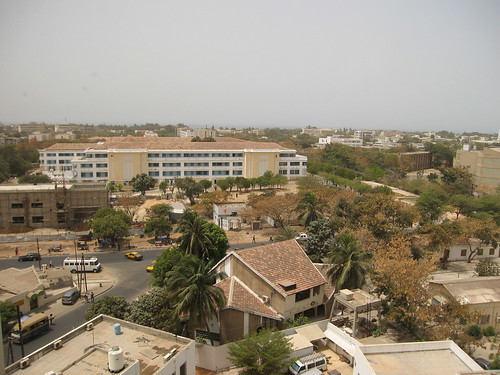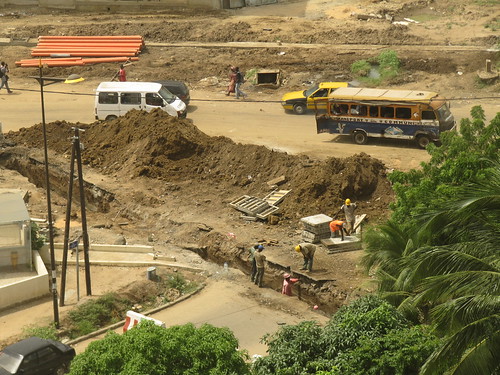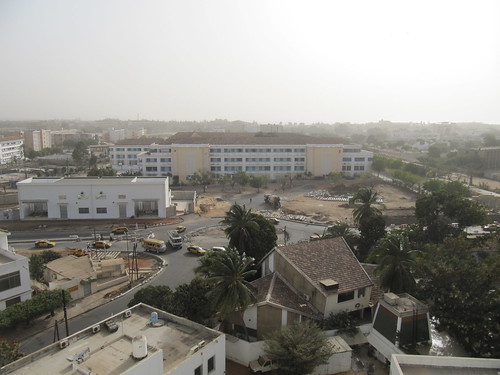In Senegal, presidential elections are slated for next February. The current president, Abdoulaye Wade, is about six hundred years old. He says that he is going to run again next year, even though he is supposed to be term-limited according to the constitution. His performance as a head of state is a lengthy subject, but I’ll just note that locals tick off myriad ways that Senegal has declined since Wade took office in 2000. Tourism, public infrastructure and transparency has suffered- the country clearly has its problems (as every country does, I will concede). People are looking forward to 2012, and my informal polling of taxi drivers leads me to believe that a change in leadership had better take place (and his first name can’t start with a K).
I hope so too. In fact, for the sake of this country and the progress that it has managed to achieve, I hope that next February will completely unremarkable. If you have been watching the news, you can probably imagine why I say this.
Did you know that 17 African countries marked 50 years of independence from their colonial powers in 2010? That’s a big milestone, but it reminds us that democracy and acceptable goverming measures to maintain stability are not created overnight. I know that I’m a killjoy, but off the top of my head here are some current events that are keeping me dialed into Senegal’s political landscape:
- We’ll start with the election process that took forever down in Guinea last year. The good thing about this event was that it was the first democratic election in 52 years, but the newly-elected president has a lot of pieces to pick up after so much tragedy in plagued this resource-rich country.
- You may or may not have noticed the ongoing election standoff disaster in Ivory Coast. This sad period for the democratic process has produced plenty of spillover here in Dakar as families (even my neighbors, in fact) have been temporarily relocated to safety until we all figure out which way is up in Abidjan.
- In December, a young Tunisian man set himself on fire in protest after he wasn’t allowed to sell vegetables. As we all know now, this was the domino that ultimately sent the president packing, and in turn provided momentum to Egypt (among other countries) to do the same. Tunisia continues to be interesting today as the Prime Minister has announced his resignation.
- After 30 years in power, Egypt is now Mubarak-less (and for the moment minus two Olmsted scholars). Momentum to depose leaders who are deemed less-than-competent by local population continues to ripple across the Maghreb.
- Today I have been reading about the exodus moving out of Libya. Even though he blames drug-spiked Nescafe for riling up his citizens, it looks like Gaddafi’s days are numbered. Who is going to fill all of these power vacuums?
- Moving back down into Sub-Saharan Africa, there was a small coup attempt in the Democratic Republic of the Congo last week.
- In Senegal, two people have set themselves on fire in front of the Presidential Palace over the past week. The party line is that these occurrences have nothing to do with the events in Tunisia (and the two deaths don’t appear to be related), but I am counting on nothing at this point. Senegalese by nature are not a violent people, so I find it a bit disturbing that we have two such stories making the news wire at the moment.
By my nature I’m a bit of a pessimist. Maybe that’s why I am trying use a stupid traffic circle as a symbol of hope that progress in Senegal is being realized- and thus the country won’t tumble down a path to chaos. But who knows. On the whole I think that people only get pissed off when they are no longer able to go about living their modest lives with some level of regularity.


